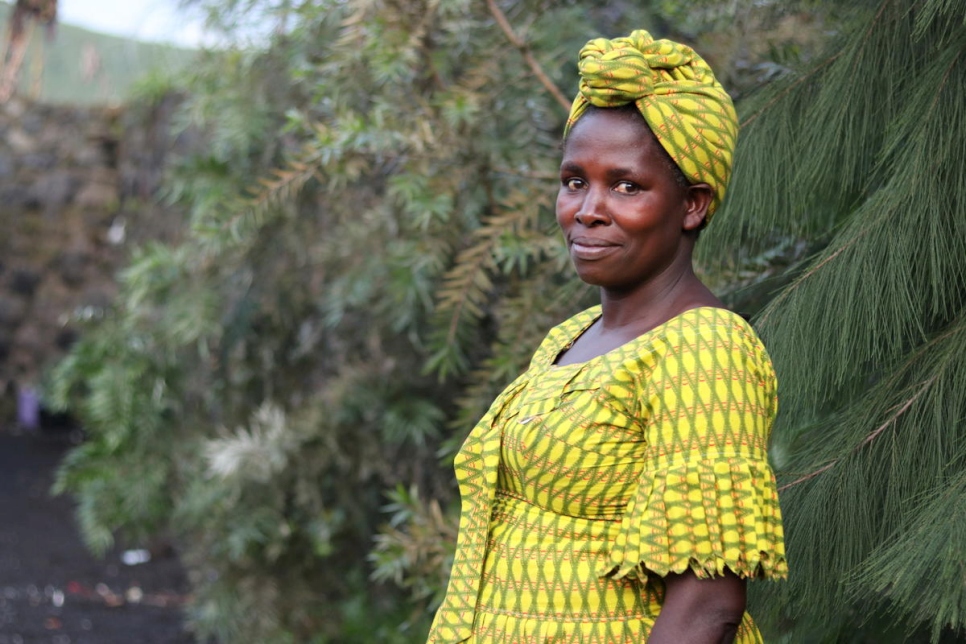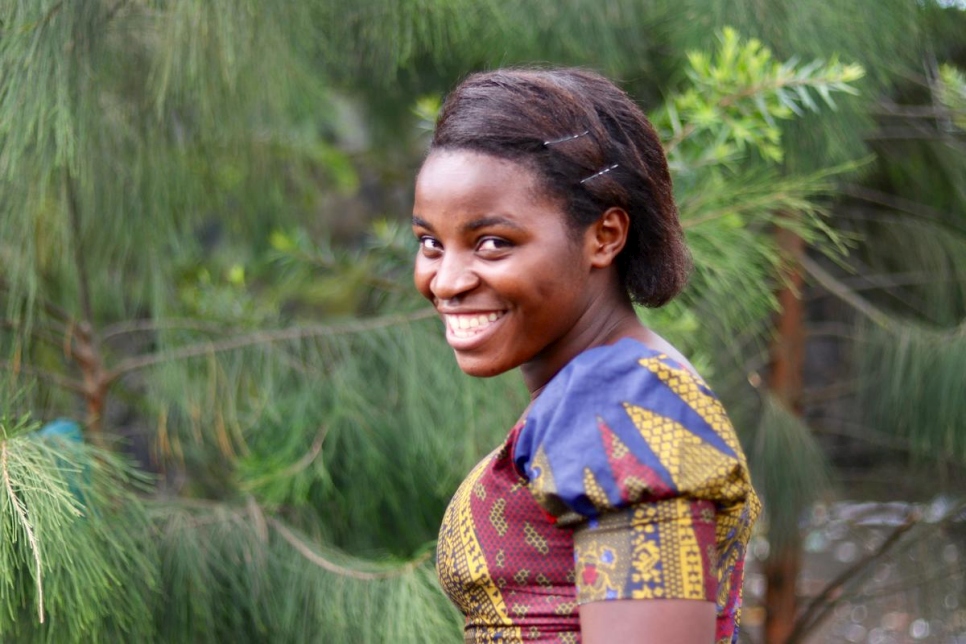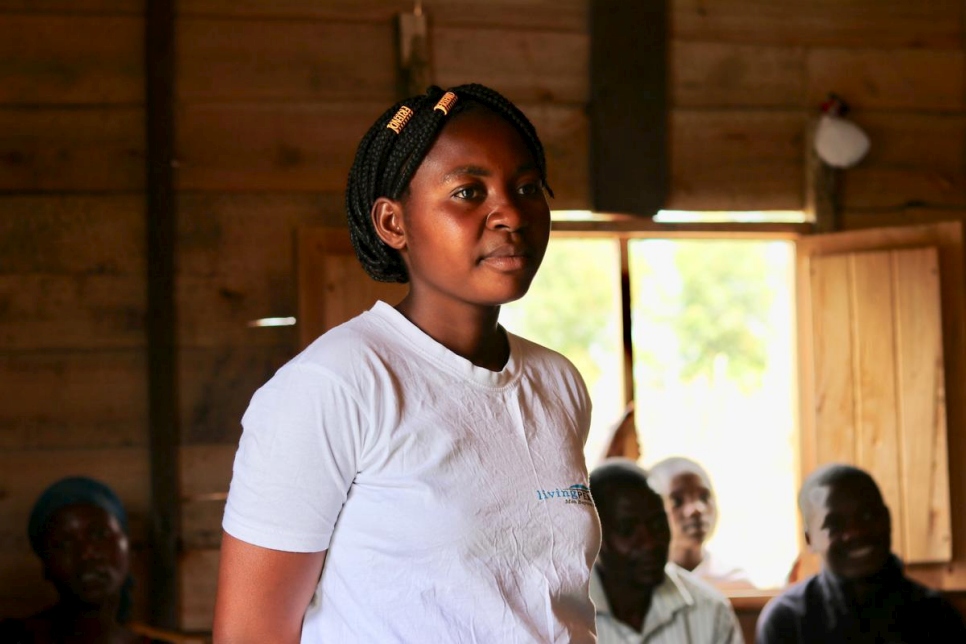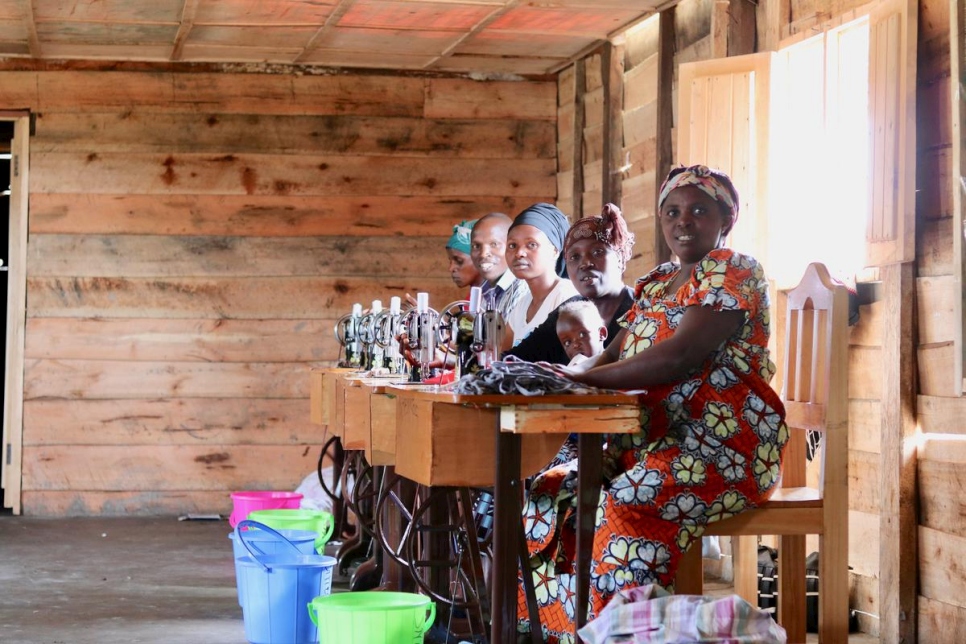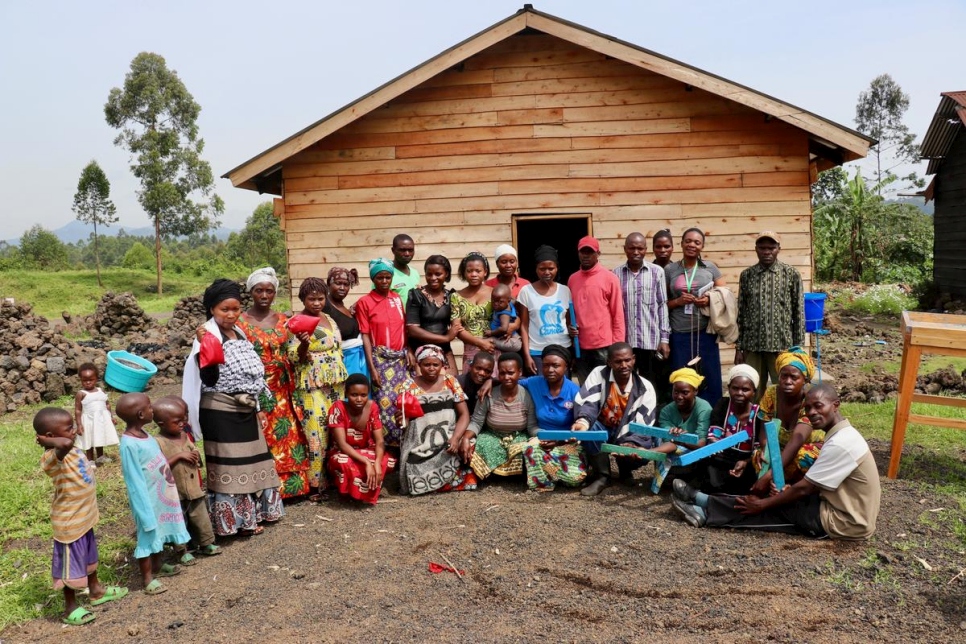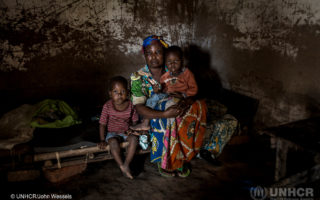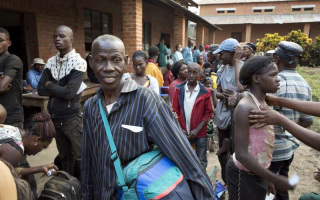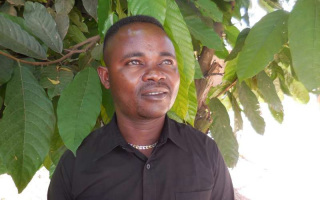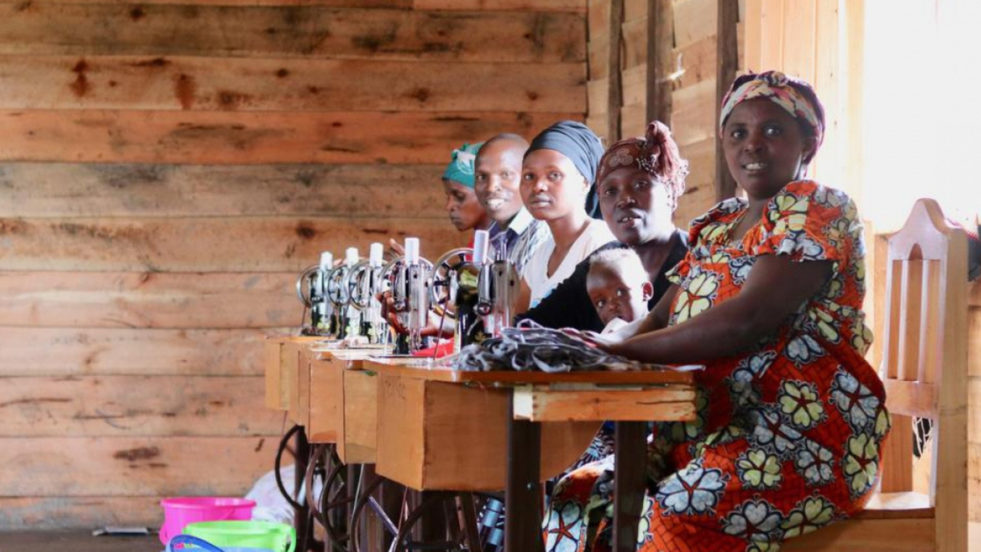
Internally displaced people work alongside local communities in Kitchanga, DRC at a factory built and equipped by UNHCR. © UNHCR/Natalia Micevic
A new sense of purpose is rekindled among displaced Congolese and locals, working together to empower themselves and address gender-based violence.
By Natalia Micevic in Kitchanga, Democratic Republic of the Congo
Elisa’s face lights up as she talks about the small factory where she has just started working. The 49-year-old Congolese mother of seven has found joy, working alongside other Congolese men and women in Kitchanga town, in the Democratic Republic of Congo’s eastern province of North Kivu.
Before settling in Kitchanga, in Kahe displacement site, Elisa was first displaced by violence in the restive North Kivu province over two decades ago. Half of her life has been spent living in displacement, fleeing violence in the region multiple times.
“It’s been a life of suffering. You suffer when you flee, leaving everything behind,” she says, adding that when she and her family first arrived in Kahe site a decade ago, there was nothing but forest all around.
“We arrived empty handed in a place where there was nothing.”
But Elisa, and 57 other displaced Congolese have found a new sense of purpose here. UNHCR, the UN Refugee Agency, built and equipped a factory where the displaced and the local communities hosting them work together, making soap and sanitary kits, using an innovative reusable menstrual pad.
“Learning to make soap has given me hope because it will soon give us an income.”
The newly built factory is aptly named “Tuungane Pamoja” which is Swahili for “working together.” Elisa, who’s also the treasurer of the factory is glad to work here.
“Learning to make soap has given me hope because it will soon give us an income and we can become self-reliant,” she explains. “I have these skills forever and if the war ends and I go home, I can continue making soap.”
North Kivu hosts the highest concentration of internally displaced people in the DRC with some 1.5 million people displaced here. Just this year, an estimated half a million people were uprooted from their homes, with many living in displacement sites. In Kitchanga, there are two displacement sites – Mungote and Kahe – where over 17,500 displaced Congolese are living. For many of them, displacement has become the norm, even as violence continues to intensify across the province’s six territories.
More than 40 per cent of all human rights violations recorded in the country have taken place in North Kivu province, including numerous cases of sexual or gender-based violence (SGBV).
Elisa was exposed severally to various SGBV risks when she used to collect firewood for a living.
“It was a life of violence. We were raped regularly. It had become normal,” she adds.
“This initiative …plays a crucial role in preventing gender-based violence and empowering displaced women and men at risk.”
Marie-Hélène Verney, the head of UNHCR’s office in Goma, North Kivu, believes that the factory’s inception will have a strong impact on the community.
“This initiative not only helps promote female hygiene but also plays a crucial role in preventing gender-based violence and empowering displaced women and men at risk,” she says.
She adds that there are plans to sell the sanitary kits in markets across the province – a step that will have a positive impact on the local economy and the entire community. More importantly, the factory will provide an essential and innovative product that is in high demand.
“The lack of affordable menstrual pads in the market has a negative impact on women and girls’ ability to go about their daily lives during menstruation, including working and attending school,” adds Verney. “In many instances you find that many displaced women use ‘pagne’ – a colourful fabric, as a pad, which often results in infections.”
The start-up is one way that UNHCR is working, using a community-based approach, to enhance prevention of SGBV and to ensure access to adequate services, including medical, psychosocial, and economic support, especially for vulnerable women and men.
“I love sewing as it’s so wonderful to see the fruits of your work right away.”
Another beneficiary of the start-up is Clémence, 20, who works at the factory sewing sanitary kits. After fleeing violence in Masisi territory 10 years ago, she settled in Kitchanga with her family. She spent a year in Goma, North Kivu’s provincial capital, learning to sew but couldn’t find work when she returned to Kitchanga.
“I love sewing as it’s so wonderful to see the fruits of your work right away,” she says. “I’m so happy I don’t have to stay home with nothing to do anymore as I have a job to go to.”
Seven locals have been selected through a community-based approach to work in the start-up with the displaced. Among the locals selected for the project is Micheline, 22, a mother of two who was born and raised in Kitchanga. Like many other Congolese, she hosts two internally displaced people on her plot of land. For her, there is no difference between the displaced and the locals as they are all reaping the benefits of this initiative with renewed hope.
“We are all brothers and sisters and we are all equal”, she says. “We work really well together and have no problems.”
Originally published by the UNHCR Africa Bureau on 26, November 28

